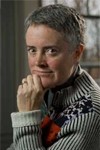 A new co-edited collection by Linda Tropp, Moving Beyond Prejudice Reduction: Pathways to Positive Intergroup Relations, was published this week. Tropp is associate professor of psychology at UMass Amherst and a CPPA faculty associate. WMAC recently interviewed Tropp about the book.
A new co-edited collection by Linda Tropp, Moving Beyond Prejudice Reduction: Pathways to Positive Intergroup Relations, was published this week. Tropp is associate professor of psychology at UMass Amherst and a CPPA faculty associate. WMAC recently interviewed Tropp about the book.
Martin Luther King, Jr., dreamed of a day not only when racial tensions would subside in our country, but when genuine associations and friendships developed apart from considerations of race and ethnicity. In a similar way, Tropp’s book explores how positive relations among different racial and ethnic groups can go beyond simply reducing prejudice.
The new 212-page volume collects writing by leading social psychologists who identify strategies for reaching across racial and ethnic divides. The book examines motivation and processes that underlie our ability to develop meaningful relationship between groups and promote trust, empathy and forgiveness.
“What we’re hoping to do with this book is go beyond social psychology’s traditional focus on reducing prejudice, and instead explore how people are motivated to actively engage with members of other groups,” Tropp says.
The need for this compilation came from Tropp and co-editor Robyn Mallett’s observation that increasingly, people report anxiety or uncertainty rather than prejudice or hostility when reflecting on what to expect or how to act with members of other groups. Though these concerns are often overlooked, they can act as formidable barriers to developing positive attitudes and relationships, she adds.
An award-winning researcher, Tropp is also the director of the Psychology of Peace and Violence Program at UMass Amherst and a member of the Public Engagement Project Steering Committee. She has worked on national and state initiatives to improve race relations in schools and has evaluated programs designed to reduce racial and ethnic conflict. Robyn Mallet is a professor at Loyola University of Chicago.
The eleven chapters in this book published by the American Psychological Association are organized in four broad sections: Reconceptualizing Intergroup Attitudes, Motivations and Expectations in Cross-Group Relations, Forging Cross-Group Relationships and Applications to Post-Conflict Reconciliation. This last topic points to similarities between processes that contribute to race relations in the United States and those that underlie conflicts in other parts of the world, such as between Arabs and Israelis in the Middle East, religious communities in Northern Ireland, racial groups in South Africa and political factions in Post-Pinochet Chile.
“It is our hope that by bringing these perspectives together in one volume, we can begin to chart new directions for research that emphasize positive pathways to improved intergroup relations,” the editors state. “That is, rather than focusing on reducing prejudice and conflict, we can actually work to enhance mutual liking, trust and friendship between groups.”
Additional information about Tropp’s and Mallet’s new collection is available at the APA website.




 Jane Fountain, Professor of Political Science and Public Policy and Director of the National Center for Digital Government, moderated a session on New Media and the Future of Government for journalists, business executives, government officials, and NGO leaders at the annual meeting of the World Economic Forum in Davos, Switzerland on Friday.
Jane Fountain, Professor of Political Science and Public Policy and Director of the National Center for Digital Government, moderated a session on New Media and the Future of Government for journalists, business executives, government officials, and NGO leaders at the annual meeting of the World Economic Forum in Davos, Switzerland on Friday. A columnist writing about the power of labor unions and the jobless recovery cites a recent blog entry by Nancy Folbre, professor of economics, in the New York Times. Folbre argues that the reason jobs aren’t being created as the economy recovers is that there is now a “borderless” and globalized economic system at work. For the full article, visit
A columnist writing about the power of labor unions and the jobless recovery cites a recent blog entry by Nancy Folbre, professor of economics, in the New York Times. Folbre argues that the reason jobs aren’t being created as the economy recovers is that there is now a “borderless” and globalized economic system at work. For the full article, visit 

